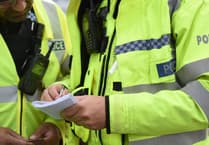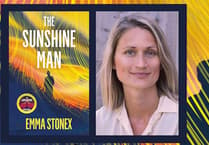DEVON County Council (DCC) has formed a consortium with two private sector companies, Zapinamo and Gamma Energy, to install and operate 150 electric car charge points on the streets of Exeter during the next two years.
Currently in Exeter there are approximately 30 publicly-accessible charge points – and once complete, this project would increase that number by 400 per cent.
The £4m StreetHUBZ project will be delivered by Zapinamo, developers of a new generation of superfast car chargers, and Gamma Energy.
The project follows a successful funding bid, supported by Councillor Stuart Hughes, DCC’s Cabinet Member for Highways Management, to Innovate UK, a government pot investing in science and research.
The DCERG is a group of 25 influential business groups, councils and public sector bodies who have pledged to work together to reduce carbon emissions and create a Devon Carbon Plan – a road map to carbon neutrality.
DCC has helped draft and signed up to the Climate Change Declaration, which commits each group to reduce emissions and help transform Devon into a low-carbon economy through “collective action, innovation and influence”.
This project is an example of that commitment, tapping into the latest electric car-charging technologies.
Zapinamo will design, build, install and maintain the chargers and Gamma Energy will own and operate the infrastructure.
The innovative chargers use a cutting-edge low power electricity supply and energy storage system, which means they are easy to install and can charge vehicles quickly.
Typically, a StreetHUBZ unit will provide 50 miles of travel after 30 minutes of charge. Whereas a standard home charge unit will provide only four miles of travel for 30 minutes.
Additionally, Co-Cars will provide a number of electric vehicles through its car-sharing service, which will allow the public to test drive an electric vehicle and use the car charge points.
This scheme is one of many that will help ensure that Devon is reducing emissions. Other DCC projects include the Street Light Action Plan and supporting the county’s community energy organisations.
Once the streetlight plan is complete DCC will have reduced carbon emissions by more than 15,000 tonnes each year, the equivalent of taking 8,000 cars off the road.
And in Devon there are currently 23 community energy organisations, more than any other county in the country. These organisations help communities generate their own energy and reduce fuel poverty.
DCC has also applied for EU funding which, if successful, would enable a network of charge points across Devon to be delivered in public car parks.
Zapinamo CEO Ian Stillie said: "This is a massive step forward for the UK and as Exeter is now leading the charge in EV charging technologies in geographic areas where the Grid capacity is particularly vulnerable and all important air quality targets need addressing fast."
Councillor Roger Croad, Devon County Council’s Cabinet Member for the Environment said: “There is a climate crisis and no one organisation, council or company has all the answers.
“Only by working together and combining our knowledge, skills and the latest technologies can we reduce emissions. This project is an excellent example of the private and public sectors working together to help achieve that goal.”
Councillor Stuart Hughes, Devon County Council’s Cabinet Member for Highways Management, said: “Many people want to exchange their petrol car for an electric car, but because of a lack of infrastructure they have been unwilling to take that step.
“This project will allow people to try before they buy, and I have no doubt that it will significantly increase the uptake and use of electric vehicles in Exeter.”
Councillor Andrew Leadbetter, Devon County Council’s Cabinet Liaison for Exeter said: "This project is consistent with the emerging transport strategy for Exeter, where we have identified the need to work more closely with the private sector and offer a platform for testing more innovative solutions to climate change on our highways network."
Councillor Rob Hannaford, the local county councillor for Exwick and St. Thomas, said: “This project is a huge step in encouraging electric car use in Exeter. Up to now the argument has been that it’s difficult to encourage more people to use electric cars until there are more charging points, and more charging points won’t be provided until there are more electric cars on the road.
"This partnership with the private sector helps break that cycle. Fewer petrol cars in Exeter will lead to a reduction in emissions, cleaner air and an improved quality of life for residents.”
Crediton has two electric car charging points at Lords Meadow Leisure Centre.





Comments
This article has no comments yet. Be the first to leave a comment.